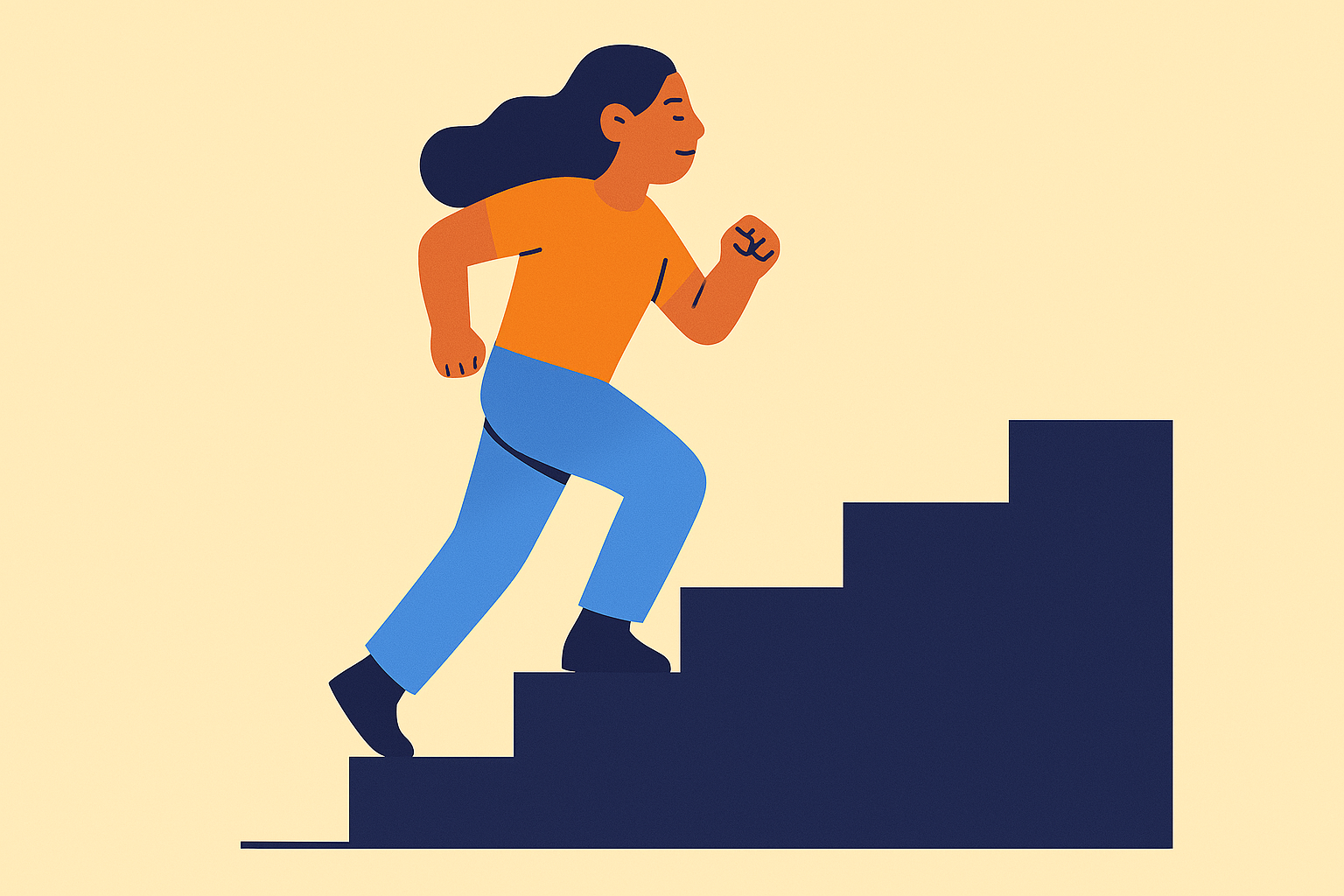If you’re someone who geeks out over building better habits, tracks your productivity in spreadsheets, and loves testing the effects of small daily changes—this one’s for you.
You might not be religious. You might not believe in any particular higher power. But there’s a curious and powerful practice that has stood the test of millennia and is waiting to become your next habit experiment: reading the Bible daily.
Why the Bible? Let’s consider the Bible beyond its spiritual foundation. For centuries, people across cultures have turned to it for wisdom, reflection, and inspiration. Even for those who don’t subscribe to its faith-based messages, the Bible can be appreciated for its rich narrative, moral insights, and literary depth. It is a profound collection of texts that explores human nature, decision-making, perseverance, and community.
From a habit-building perspective, reading the Bible daily gives you:
- A fixed, measurable, low-effort input.
- A finite, goal-oriented structure (66 books, hundreds of chapters).
- A reflective, slow-processing activity that encourages consistency.
In short, it’s the perfect anchor habit.
Mindfulness Through Scripture
In a fast-paced world where distractions are constant and screens dominate our attention, taking a few minutes each day to quietly read the Bible can be a powerful form of mindfulness. The rhythmic pace of the text, the meditative quality of its phrasing, and the timeless themes offer an excellent opportunity to slow down and breathe.
When you read with intention, your focus turns inward. You reflect on words, emotions, stories, and your own response to them. This act of reflection—without judgment or urgency—is at the heart of mindfulness. You begin to notice patterns in your thoughts. You become more aware of how you respond to narratives of struggle, hope, forgiveness, and courage.
Many readers report feeling more grounded after just a few days of this practice. They describe the time spent reading as a kind of mental and emotional centering—similar to meditation, but with the added structure and richness of an ancient, thoughtful text. Whether it’s morning or night, this quiet reading time becomes a mental reset button.
Bible reading also lends itself to a flow state. Its cadence and literary style encourage you to focus on one thought at a time, letting go of the chaos around you. This focused presence enhances clarity and fosters emotional resilience—two benefits deeply aligned with mindful living.
If you approach the practice without pressure—focusing less on interpretation and more on attention—you’ll begin to notice the calming and restorative effects that come from simply sitting with the text.
Habit Nerds, Rejoice: It’s Quantifiable
If you’re the kind of person who counts macros, mileage, or meditation minutes, you’ll love that Bible reading can be tracked easily. Most versions have clear chapter numbers, structured daily reading plans, and even built-in metrics. You can easily build a progress tracker with columns like “Book,” “Chapters Read,” “Reflections Logged,” or even your mood before/after reading.
Here’s an example of a minimalist tracker:
| Day | Chapter Read & Notes |
|---|---|
| 1 | Genesis 1 – Observations on beginnings and order |
| 2 | Genesis 2 – Noticed themes of duality and purpose |
| 3 | Genesis 3 – Reflections on choice and consequence |
Some habit trackers even let you link your daily Bible reading with other routines like journaling or meditation. This lets you reinforce your habit loops while building data-driven insights about your internal state over time.
Appreciating the Bible’s Depth and Wisdom
The Bible can be approached much like other classic philosophical or literary texts—as a source of reflection, moral inquiry, and personal insight. It is filled with poetry, parables, historical accounts, and timeless teachings.
What happens when you read it daily? You start to observe patterns in behavior, consequence, leadership, compassion, and perseverance. These are universal human themes. You train your brain to reflect, make connections, and appreciate complexity. These are powerful mental gains that enhance leadership, emotional intelligence, and focus.
If this still doesn’t feel like the right fit for you, consider reading the Psalms for 30 days. The Psalms are poetic, emotionally resonant, and often brief—making them a perfect entry point for reflection and consistency. Many people find them calming, grounding, and surprisingly relatable regardless of belief.
What to Expect After 30 Days
Here are some typical observations reported by people who read the Bible daily as part of a personal development practice:
- Improved mental clarity in the morning or evening
- Increased sense of structure and order
- Heightened emotional resilience from reflective time
- Renewed interest in literature, philosophy, and history
- A calming counterweight to doomscrolling or binge-watching
Some even find that the reflective nature of the readings fosters deeper journaling or sparks conversations with family members from different generations who hold the Bible dear. That, in itself, can be a meaningful social habit.
How to Start (and Stick With It)
Don’t overthink it. You don’t need a theologian’s brain or a seminary degree. Just pick a translation that feels readable (like the NLT or ESV), commit to reading a chapter a day, and track it. Choose the same time each day. Set a small reward. Log your reactions.
Avoid turning it into a chore. Treat it like a mindfulness or reflective reading practice. The point is to develop consistency, presence, and introspection.
And if a chapter feels too much? Start with a few verses. Some days you’ll read more. Others you’ll pause and reflect. That’s success.
How the 30 Day Habits AI Coach Can Help
Here’s where the real optimization begins. Our 30 Day Habits AI Coach isn’t just another reminder tool. It’s your personal data-driven habit strategist.
When you choose Bible reading as your habit, the AI Coach immediately starts by predicting your probability of success based on your goals, schedule, and behavioral patterns. It customizes a 30-day plan that adapts in real-time.
If you miss a day, the coach doesn’t just note it. It recalculates your success metrics, adjusts your pacing, and offers encouraging nudges backed by behavioral psychology.
Expect timely SMS or email reminders that align with your preferred time of day and tone (motivational, gentle, humorous, etc.). These messages are based on your personal trend data—so if you tend to fall off mid-week, your coach will double down with midweek reinforcement.
Over time, you’ll get smarter prompts, better insights, and a personalized end-of-month report that shows your consistency rate, mood correlations, and next-step suggestions.
With the 30 Day Habits AI Coach, Bible reading isn’t just a routine—it becomes a mirror into your behavioral data, helping you build discipline, reflection, and a more thoughtful daily rhythm.
Whether you turn to Scripture for faith or for personal growth, this is a habit experiment worth trying.
And who knows? It might just become one of your most meaningful and consistent rituals yet.











